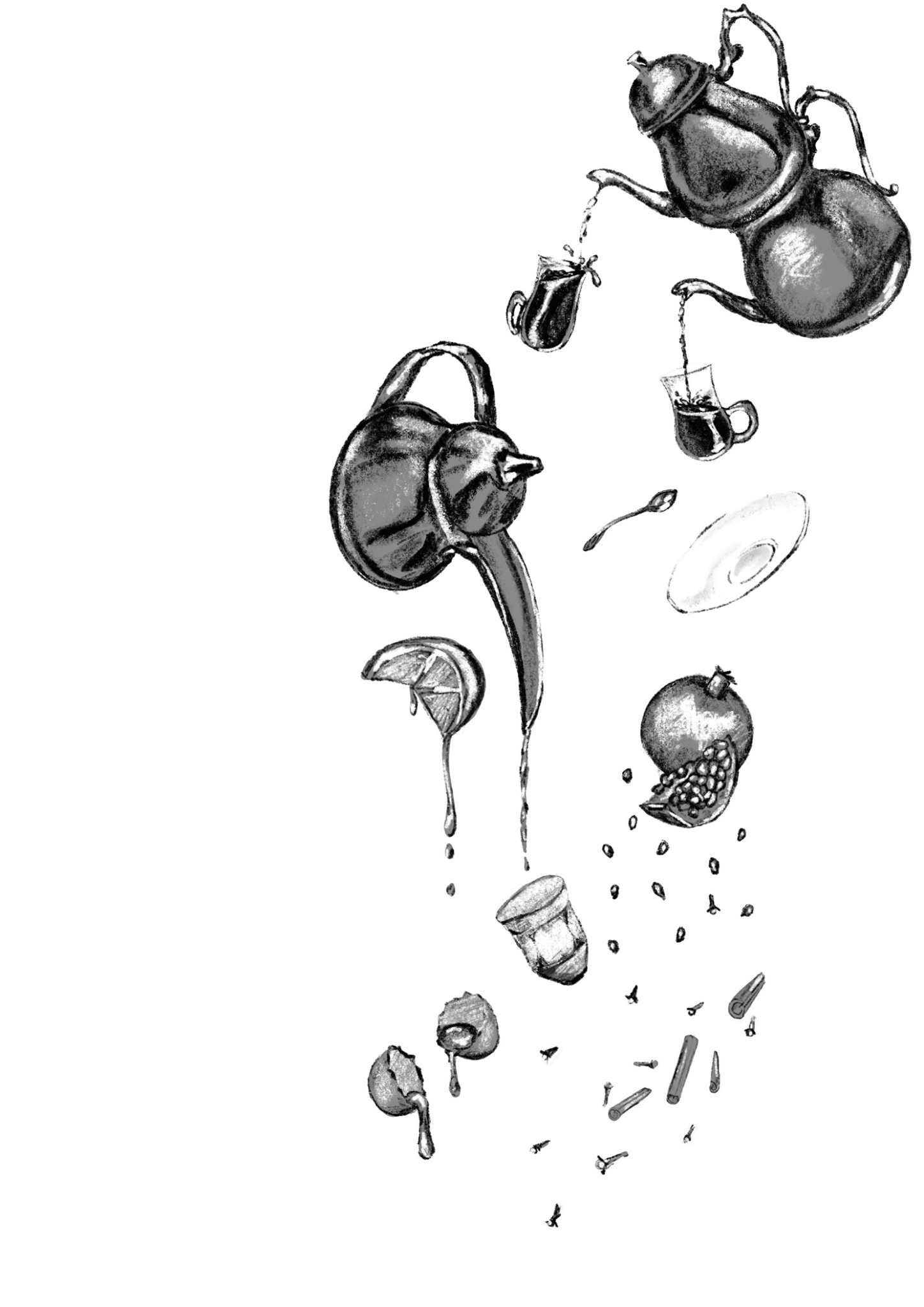I
“Know thyself,” a moribund maxim:
even the neighbours consume an idea of themselves
which is make-believe. Speaking in tongues
instead of with them, we hiss in counterfeits.
This is not a caricatural fault of character.
This is the internal exotic — a rotund, warlike tiger
which rests in the chest, grinds pointed teeth, waits
to pierce through lungs — words fake
Like bags of bread: round plastic crinkling,
roaring, attacking
our ears and stomachs as we map its peacetime taste.
The green cedar tree emblazoned on the bag
is neon, circular, transparent: a way of consuming the self
through redolent tastes, bitter memories,
and not by immediate definition. Neither dead,
neither living. A purgatory whose parameters are defined
by the performing.
II
In Athens, my grandmother’s mother would herald the summer
by cracking eggs over potatoes in a skillet. Circular
pita bread round in celestial orbit swallowed the food.
In Alexandria’s Summer, Yiayia in her youth, in her birth-right
city, swam in the Mediterranean. Eating Medjools
with milk, draped in deep-Tyrian purple linens and silk
before the coup and expulsion of foreign nationals.
Moving onwards, every Beirut winter she made molokhia
as she still does in Sydney: soup of jute, cilantro, lemon,
the dish named after the Pharaohs who ate it for strength
and continuity of national identity. Around the dinner table,
a petite histoire unfolds like frozen filo pastry.
I am like the table: buttressed by the four legs
of two selves, and, like the wood, my cells are strong
but the roots are no longer. I look upwards at the Sun,
flashing its morse code: a language pushed
downwards, fiery foie gras —
I pour the tea. We
add cinnamon for taste, and dried cloves
numbs our tongues. This is the ritual
where we contribute
to our own silence. Not because our mouths
are full, but because our hearts and minds
like glorious Egyptian tombs,
have been raided and emptied
over and over.





